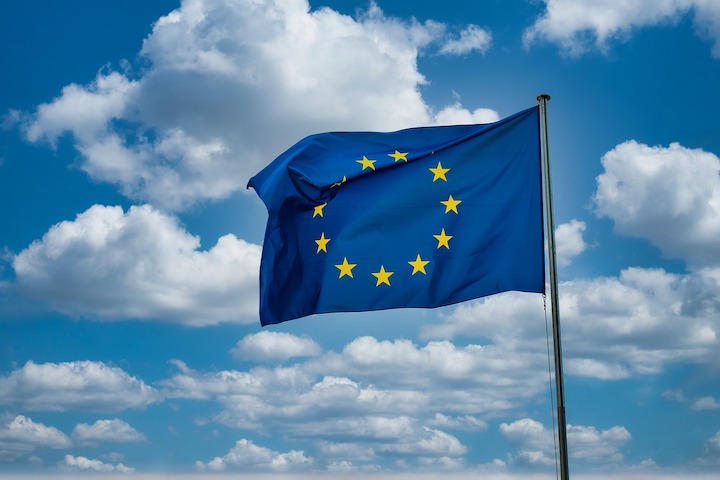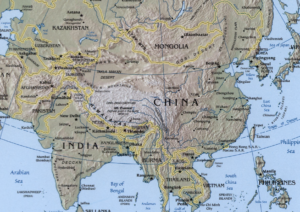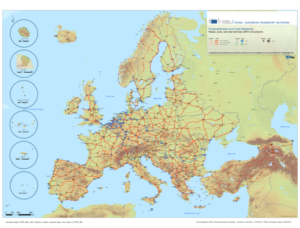Regulatory frameworks are a set of rules, laws and guidelines that regulate the functioning of the sectors in which private companies provide public utility services – for example, telephone companies, companies in the electricity sector and even in the hydraulic sector.
These standards are responsible for creating an environment that reconciles the economic and financial health of companies with the demands and expectations of the consumer market.
Bringing the term to the geopolitical milieu, there is a process of globalization of regulations and standards underway, and the European Union is in a way causing unilateral regulation despite not being de jure – meaning that these practices are not legally recognized. , regardless of whether the practice actually exists – externalizing its laws outside its borders through market mechanisms.
In some sectors of the academic world, the debates about the relative powers and influence of the institutions of the European Union, it has become common to suggest that the European Commission is in decline, especially in the case of the defenders of the “new intergovernmentalism”, which clashes with “supranationalism”.
In intergovernmentalism, governments do not give up their decision-making sovereignty, so they negotiate and approve (or not) decisions through national institutions. On the other hand, supranational institutions constitute a level above the States that are collaborating in some way – whether in the political, economic or military area –, thus not depending on national structures for a decision.
The term “Brussels Effect” runs counter to this view of EU weakness. Created by Finnish-American author Anu Bradford, a professor of law at Columbia University and an expert in international commercial law, the “Brussels Effect” says that the European Union (EU) is not a declining world power, but the opposite.

What is the “Brussels Effect” in the production and dissemination of regulations that go global?
Anu Bradford, author of “The Brussels Effect: How the European Union Rules the World“, argues that, despite the bloc’s many challenges, the EU remains an influential superpower that shapes the world according to its own attributes through phenomenon she called the “Brussels Effect”.
The Brussels Effect concerns the unilateral power of the European Union to regulate global markets in an indirect way, and not through international institutions or by seeking support from other nations outside the Union.
According to Bradford, the EU has the unique ability to declare regulations that shape the scope of global business between today’s countries and, consequently, raise world standards, leading to a remarkable Europeanization of many important issues of international trade.
This capability extends to standards in competition policy, environmental protection, food safety, protection of privacy, or regulation of hate speech on social media.
How does the European Union manage to influence the rest of the world with its policies and norms?
Through the adoption of EU-compliant regulations by foreign governments. This may be the result of lobbying by local companies that have already adapted to the union’s regulations and standards, however for foreign jurisdictions there is a broader set of mechanisms for the rules to be disseminated.
According to Bradford, the best way to earn the trust of their consumers, companies around the world can implicitly submit to EU norms and values. These norms are generally well produced and enforced through an appropriate legislative process.
The most interesting thing about the unilateral Brussels Effect is that, unlike other phenomena, it is characterized as peaceful and silent.
So, the EU does not need to coerce governments and private companies, because market incentives lead them to adhere to these norms.
Unlike traditional means of international influence, such as economic sanctions, regulatory power is one of the few areas where unilateralism works effectively.
Bradford also believes EU rules hold a “gold standard” as European values have broad appeal, and when it comes to ideas about regulating technology, or even mitigating climate change, other countries tend to mirror each other. and follow.
Examples of European policies and standards that have influenced regulations and guidelines in other parts of the world
The Brussels Effect manifests itself when companies conclude that it is appropriate to follow a homogeneous production pattern or conduct, rather than using lower regulations in other markets.
This phenomenon is evident in the technology industry, where it is observed that, currently, companies aim to be perceived as aligned with the values embodied in EU rules.
Bradford claims to witness more than 100 countries that make use of data privacy standards based on GDPR (General Data Protection Regulation) today.
According to her, “the EU’s digital paternalism offers a third balanced way of regulation between ‘American techno-libertarianism’ and ‘China‘s digital authoritarianism’.”
For this reason, these companies do not adhere to the strictest Chinese rules on freedom of expression online, for example. Likewise, techno-libertarianism, prevalent in the United States of America, is being seen as obsolete. On the other hand, Chinese digital authoritarianism is considered unacceptable.
The future trend of the European Union’s ability to influence policies and norms around the world
According to Anu Bradford, companies aim to maintain a uniform global brand. In this way, companies are able to present to the markets and their consumers an important sign of reliability by associating themselves with high standards in the various areas of regulation.
The possibilities are diverse for companies, whether listing their business on a stock exchange that has strict reporting requirements or adhering to high environmental, human rights and labor standards.
Consequently, companies adhering to European Union standards can ratify their legal status, achieve a greater reputation and win over consumers whose values can enthuse the behavior of their customers.
Therefore, it can be concluded that in addition to the great political and military influence of the European Union, it is observed that in a discreet and natural way, the persuasive power of the union, within the scope of regulatory frameworks, is increasing, contrary to what part of politicians and academics can claim.
The trend points to a diffusion of regulatory norms at a global level, especially – but not only – by private companies, reinforcing and expanding, even more, the soft power of the European Union.
And with greater integration of the Union in a wide range of political and economic areas (such as tax and health), the tendency is for the EU to produce even more regional regulations and standards that could become global. Therefore, the EU’s influence as a dictator of world norms and standards will only increase with the greater integration of the bloc.




















[…] aligning its standards with its fundamental values. For the EU, which already dominates the standards of regulatory frameworks, this competition transcends the commercial sphere, being an initiative to shape a digital future […]